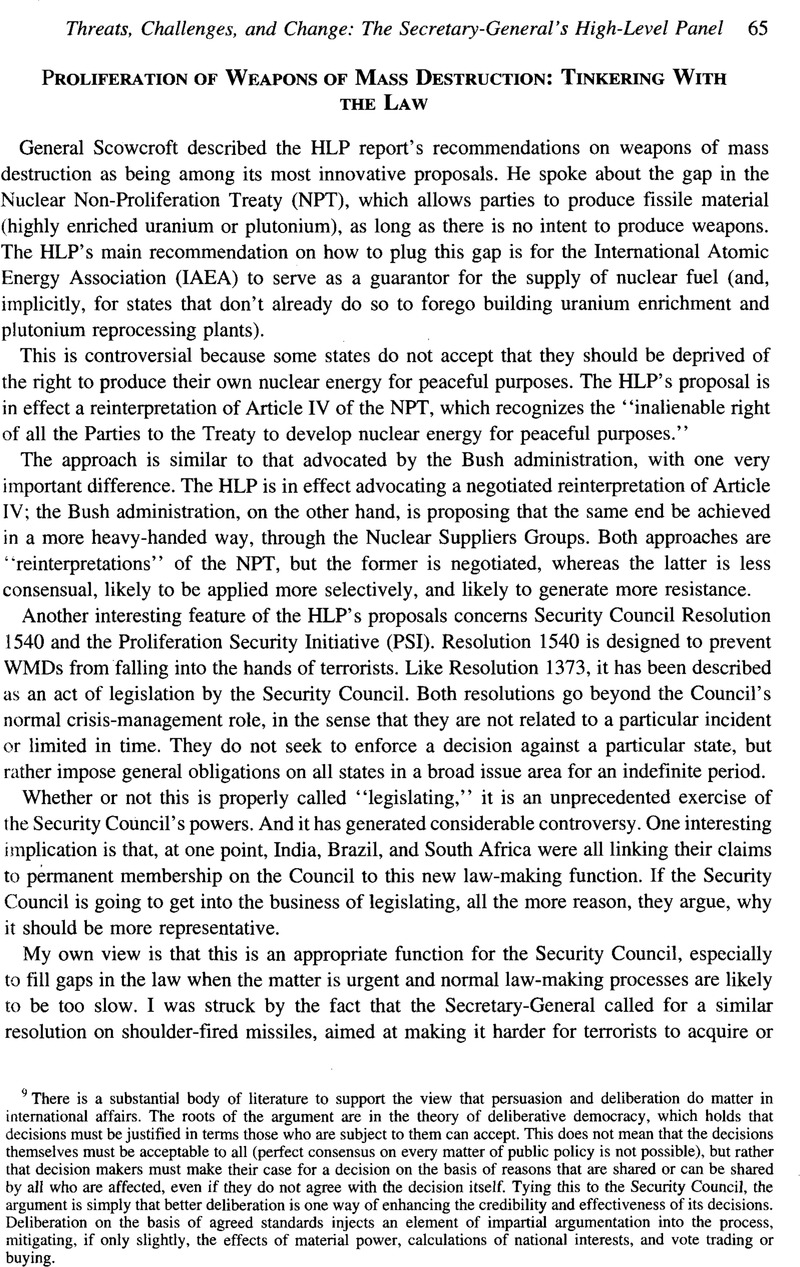No CrossRef data available.
Article contents
Proliferation of Weapons of Mass Destruction: Tinkering With the Law
Published online by Cambridge University Press: 28 February 2017
Abstract

- Type
- Threats, Challenges, and Change: The Secretary-General's High-Level Panel
- Information
- Copyright
- Copyright ©American Society of International Law 2005
References
9 There is a substantial body of literature to support the view that persuasion and deliberation do matter in international affairs. The roots of the argument are in the theory of deliberative democracy, which holds that decisions must be justified in terms those who are subject to them can accept. This does not mean that the decisions themselves must be acceptable to all (perfect consensus on every matter of public policy is not possible), but rather that decision makers must make their case for a decision on the basisof reasons that are shared or can be shared by all who are affected, even if they do not agree with the decision itself. Tyingthis to the Security Council, the argument is simply that better deliberation is one way of enhancing the credibility and effectiveness of its decisions. Deliberation on the basis of agreedstandards injects an element of impartial argumentation into the process, mitigating, if only slightly, the effects of material power, calculations of national interests, and vote tradingorbuying.
10 In Larger Freedom, supra note 3, ¶ 101.


